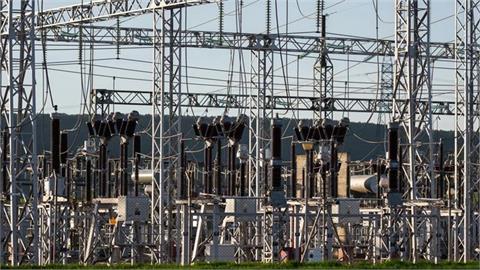The European countries have finally agreed on banning the Russian oil exports as a reaction to the Russia-Ukraine war, however, it is widely believed that the EU can easily replace lost Russian oil although the practical impact of the measure may not be as successful as the bloc hopes.
Last week, the EU leaders finalized the scope of the 6th sanctions package, which calls for a 90% reduction of oil imports from Russia by the end of 2022.
The plan, which has been on the table since the beginning of last month, includes the phase-out of Russian crude oil supplies in six months and the supply of refined products by the end of the year.
The package had seen reservations from many EU countries including Czechia, Slovakia and Bulgaria, but Hungary was the first and hardest to object, especially to the oil imports ban through the Druzhba pipeline.
After long and intense negotiations, the EU states agreed to ban seaborne oil transport, partially exempting pipeline oil, which Hungary will use to transport oil by the Southern Druzhba pipeline.
The EU imports around 25% of its oil from Russia, and is now turning to other oil-producing countries such as Saudi Arabia, the United Arab Emirates (UAE), Kuwait, and Iran. However, experts think that the new sanctions package will have a limited impact on the markets.
- ‘Russia will reroute oil to other directions, most probably to China’
“There's no real problem with oil,” said John Roberts, energy security specialist at Atlantic Council.
“Because oil is what they call fungible which means it can be shipped and it can be transported. If there's a bubble in one part of the system, the air will come out somewhere else,” he explained.
Roberts said shipping oil is flexible and can be done in many ways, however, the situation is different when it comes to transporting gas.
“If you decide you are not going to buy Russian oil, you can buy oil from other people. It's an open market. If they don't want to buy Russian oil, they can buy from Saudi Arabia, they can buy oil from Nigeria, they can buy oil from North Africa. There are all sorts of places that they can get it from. And it's a global market,” he said.
Roberts highlighted that Russia would reroute its oil from Europe to other directions, which he assumes to be China.
According to data from the Chinese General Administration of Customs, the country received 43.03 million tons of crude last month, or 10.51 million barrels a day. That’s up 4% from March and the most since January.
Roberts said there isn't a real problem for the EU to ban Russian oil. For him, the key problem was “the insistence of Hungary that an exception should be made for inland states that relied on Russian supplies.”
The EU agreed that some oil should still come through pipelines “but very reluctantly,” Roberts said.
“How long this lasts for I don't know. My own guess is the EU has caved into Hungarian demands because it is not yet ready to face the prospect that it actually has to have a reckoning with Hungary on the grounds that Hungary is now the most disruptive member of the European Union and that it doesn't stand necessarily for the principles of the European Union. But it enjoys the economic benefits of being a member and it is leveraging its position very effectively,” he added.
About the impact of the EU's re-drawn oil supply map on global oil markets, Roberts said it has a marginal impact on pricing in the world, but there are bigger issues that affect pricing.
“How much oil is Saudi Arabia producing, how much oil are the non-OPEC countries producing, the United States? We're still at that stage where OPEC is trying to coordinate with key non-OPEC nations including Washington as to whether or not they should be actually limiting their production in order to maintain pricing because prices have started to come down again,” he said.
Roberts said the pricing issue is now a secondary concern for the markets and what is more important is “the eventual concept that Russia is leaving a major energy market.”
The European countries would not consider Russia as a reliable supplier as long as Russia is at war with Ukraine, said Roberts who was also certain that the EU would get stronger and stronger in its belief that it has to limit its trade and business as well as its political relations with Russia.
- ‘Russian oil sector would suffer much like Venezuela’
Randall Mohammed, former vice president of energy for Ahart Solutions International and energy market commentator, pointed out that the EU oil and gas imports from Russia currently account for 40% of demand.
Noting that the predominant export to Europe is the Urals which is a medium to light crude flavored by European refiners, Mohammed said, “Technically, Europe could source crudes with similar specifications from Saudi Arabia, the UAE, Kuwait, Iran, Oman, Iraq and Nigeria.”
Mohammed drew attention to the inability of these countries to increase production and said the challenge was “to meet the gap if Europe decides to curtail two-thirds of Russian oil by year-end.”
Recalling that Iran is already under sanctions, Mohammed asserted that oil import from Iran is currently unlikely “unless the EU unilaterally decides to import oil from Iran while negotiating supply agreements with others.”
He said unlike pipeline oil imports from Russia, alternative imports would be seaborne, increasing cost.
“The other option is for refiners to reconfigure their plants to process heavier crudes, but this could take years and requires significant investment,” he said.
Russia has been selling oil at a discount, making it very appealing to refiners looking to boost their gross refining profits, which Mohammed believes makes other alternatives more expensive, pushing the cost of fuels up.
Warning of higher inflation and a risk of recession, Mohammed said in the long term, “the Russian oil sector would suffer much like Venezuela.”
“Replacing Russian oil is easier said than done, except for fuel shortages and higher prices,” he added.
Regarding the possible new routes for Russian oil, Mohammed believes that Russia's buyers would be limited to India and China.
“However,” he said “India may begin reducing imports under pressure from the US, putting China at the top. I believe Russia would look towards Africa and Latin America for markets with refined products being the main export as these countries lack refining capacity,” he added.
- ‘Pipeline oil export would hurt Russia more’
Christof Rühl, a senior research scholar at the Center on Global Energy Policy of Columbia University in New York City, described the EU decision on the Russian oil boycott as “a poor one.”
The immediate result of this latest move, according to Ruhl, will be the easy rerouting of Russian-shipped oil.
He said sanctioning pipelined oil would have hurt the Russian economy more.
“EU decision making based on unanimity is a thing which doesn’t work in crisis situations, and it clearly showed its limitations in this case. Having said that, the sanctions game will continue, precisely because there is more scope in the crude oil markets to tighten the screws, and people who are adamant about ending the war, will continue to advocate for this, including those in government.”
(Anadolu Agency, June 10, 2022)



